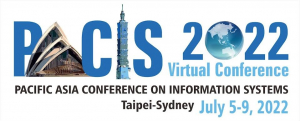PACIS 2022 Proceedings
From Classroom to Metaverse. Towards Methodology for Upskilling and Reskilling in the Age of Web 3.0
Loading...
Paper Number
1030
Abstract
This century is characterized by swift changes in technology and digital environment. We live in a connected data-driven society with omni-social components and diverse range of capabilities that transform how we engage with friends, family, work and other facets of our life. Adapting to these changes requires new competencies, and for many individuals – upskilling and reskilling. These changes have become possible due to advancements in connectivity via the internet and the web. The first generation of the web, Web 1.0, provided global reach by allowing information access from any location. From the education perspective, this innovation enriched access to information and publisher resources. However, the majority of work-related training happened using traditional in-person approach. The next iteration of the web - Web 2.0 created an unparalleled reach characterized by high interactivity, social connectivity, and user-generated content. Web 2.0 made possible omni-social channels and opened possibilities for information in written, audio and video forms to be simultaneously available around the world. It gave rise to gamification and social rewards by bringing game mechanics to serious tasks. It enabled gig economy, democratized trading and created new web-centric models. Education benefited from MOOCs, gamified solutions, and video webinars such as Zoom, making knowledge accessible anywhere in the world. The next iteration of the web – Web 3.0 is emerging. Web 3.0 is characterized by decentralization that provides users with greater control over their information. With the internet of things connectivity, the user interaction can be vastly increased and new capabilities such as semantic web (Berners-Lee et al. 2001) and built-in AI applications may emerge while providing immersive experiences such as metaverse. There is a focus shift to blockchain, crypto-assets, NFT, decentralized finance, and smart contracts that requires different type of upskilling and reskilling. The goal of this research is to create a methodology of emerging needs for upskilling and reskilling in a new digital world, including gig careers, social media influencers, crypto-asset experts, and other emerging careers. To provide adequate training, we propose immersive scenarios, offering increasing media richness and modeling human interaction between virtual and real worlds. The first step in this program of research is the methodology and mapping new required skills to particular immersive scenarios while reinforcing skills necessary for vertical, horizontal and lattice career patterns. The proposed tools are branching scenario training based on user decisions in real time while learning through exploration, immersive scenarios with increased sensory richness such as metaverse, and role play serious games. The second step in this program is developing and testing the solutions using both Web 2.0 and Web 3.0 applications.
Recommended Citation
Triantoro, Tamilla and Jackson, Nicole, "From Classroom to Metaverse. Towards Methodology for Upskilling and Reskilling in the Age of Web 3.0" (2022). PACIS 2022 Proceedings. 296.
https://aisel.aisnet.org/pacis2022/296
When commenting on articles, please be friendly, welcoming, respectful and abide by the AIS eLibrary Discussion Thread Code of Conduct posted here.



Comments
Vote on TREO paper #1030 by clicking here